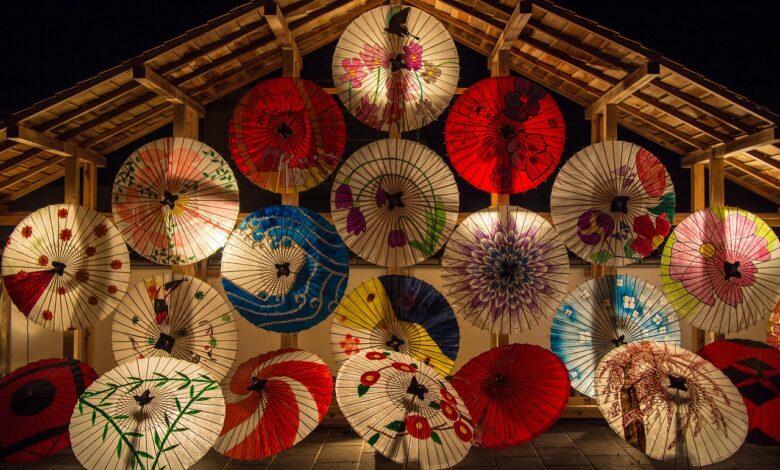Japanese Dream Meaning & Biblical Interpretations

Embarking on a journey into the enigmatic world of dreams, the concept of Japanese dream meaning stands out as a unique and fascinating area to explore. In this realm, every dream is more than just a series of random images; it’s a window into our deepest subconscious, woven with cultural threads and personal experiences. As we delve into the intricate symbolism of Japanese dreams, we also touch upon the spiritual and the profound, including the intriguing biblical meaning of Japanese in a dream. This article invites you on an exploratory adventure, where ancient traditions meet personal introspection, revealing layers of meaning in the dreams that whisk us away each night.
Japanese Dream Meaning and Interpretations
Diving deeper into the symbolism within nocturnal narratives from Japan, we uncover layers of interpretation that reflect a blend of cultural, historical, and personal elements. These visions, though often enigmatic, can provide profound insights into our waking lives.
- Nature’s Symbolism
- Cultural Icons
- Samurai: Encountering a samurai might symbolize strength, discipline, and a sense of duty, reflecting one’s inner resilience.
- Geishas: These figures can represent artistic expression and the complexity of social interactions in one’s life.
- Animals and Mythical Creatures
- Spiritual and Zen Elements
- Zen Gardens: These serene landscapes can indicate a longing for peace and harmony, reflecting one’s internal state of mind.
- Temples: Dreaming of a temple might suggest a quest for spiritual enlightenment or a need for inner reflection and meditation.
- Seasonal Imagery
- Spring Blossoms: Indicative of new beginnings and fresh starts, hinting at change or rebirth in one’s life.
- Autumn Leaves: Symbolizing the cycle of life and letting go, these can reflect a phase of transformation or introspection.
Each of these elements, when appearing in nocturnal visions, carries with it a story, a piece of wisdom waiting to be deciphered. While interpretations can vary widely, they often touch upon universal themes of human experience, reflecting our fears, hopes, and the complexities of our emotions. This journey into the subconscious, through the lens of Japanese culture, opens up a world where every image and scenario can be a guide to understanding ourselves and our place in the world.
What are Japanese’s Common Dreams?
Exploring the collective subconscious of Japan reveals a tapestry of dreams that are both unique and universal. These dreams, rooted in cultural, historical, and personal contexts, provide insights into the common themes that occupy the Japanese psyche.
- Sakura (Cherry Blossoms) in Full Bloom
- A quintessential symbol of Japan, cherry blossoms in dreams often represent the ephemeral nature of life and beauty. This dream may suggest a period of fleeting joy or a reminder to appreciate the transient moments of happiness in one’s life.
- Lost in a Bamboo Forest
- Finding oneself lost in a bamboo forest might indicate feelings of being overwhelmed or lost in one’s waking life. It can also symbolize the need for solitude and self-reflection, urging the dreamer to find their path amidst life’s complexities.
- Climbing Mount Fuji
- A dream of ascending this iconic mountain often reflects a journey of self-improvement and the pursuit of one’s goals. It signifies ambition, the overcoming of obstacles, and the quest for personal achievement.
- Traditional Tea Ceremony
- Participating in a tea ceremony in a dream can symbolize a desire for harmony, peace, and tradition. It reflects the dreamer’s need for mindfulness and the appreciation of life’s simpler, more refined aspects.
- Encountering a Geisha
- A dream involving a geisha may represent the complexities of social interactions and the different roles one plays in life. It can also signify beauty, art, and the mastery of cultural practices.
- Witnessing a Tsunami
- This powerful natural phenomenon in a dream can symbolize overwhelming emotions or significant life changes. It often reflects feelings of being out of control or swept away by life’s circumstances.
- Walking through a Torii Gate
- Passing through a Torii gate in a dream often symbolizes entering a new phase of life or a transition from the mundane to the sacred. It can represent a spiritual journey or a call to introspection.
- Participating in a Matsuri (Festival)
- Dreaming of a lively festival can signify joy, community, and celebration. It might reflect the dreamer’s desire for social connection or the celebration of life’s milestones.
- Observing the Snowfall on Kyoto’s Temples
- The serene image of snowfall on ancient temples can represent purity, tranquility, and a sense of timeless beauty. This dream might suggest a need for peace and reflection or the appreciation of life’s quiet, still moments.
These common dreams, rich in symbolism and cultural significance, offer a window into the collective soul of Japan. They reflect universal human experiences and emotions, such as joy, fear, ambition, and the quest for meaning. By understanding these shared dream themes, we gain a deeper appreciation of the common threads that unite us in our subconscious explorations. Each dream, with its unique narrative and symbolism, provides an opportunity for introspection and understanding, not just of the self, but of the rich cultural tapestry that shapes our dreams and lives.
Biblical Meaning of Japanese in Dreams
When we cross-reference the vivid imagery of Japanese dreams with biblical interpretations, a fascinating tapestry of meanings emerges. This blend of Eastern symbolism and Western spirituality offers unique insights, revealing the universal nature of dreams as a medium for divine messages and personal revelation.
- Cherry Blossoms and Biblical Teachings
- In biblical context, cherry blossoms can be seen as symbols of life’s fleeting nature, echoing the Scriptures’ teachings about the transience of earthly existence. They remind us to focus on eternal truths and the beauty of creation as a divine gift.
- Mount Fuji and the Tower of Babel
- The ambition symbolized by Mount Fuji in dreams can be paralleled with the biblical story of the Tower of Babel. This dream might caution against pride and the pursuit of goals without spiritual guidance, emphasizing humility and reliance on divine wisdom.
- Samurai: Warriors and Biblical Giants
- Just as samurai represent honor and duty, biblical giants like Goliath symbolize formidable challenges. A samurai in dreams could be interpreted as a call to face one’s battles with faith and moral integrity, drawing strength from biblical examples of courage.
- Geishas and the Virtuous Woman of Proverbs
- Dreaming of a geisha could relate to the biblical depiction of wisdom and grace in womanhood, as extolled in Proverbs. This might suggest a need to appreciate inner beauty and wisdom, valuing qualities that are honored both biblically and in traditional Japanese culture.
- The Biblical Reflection in Zen Gardens
- Zen gardens in dreams might resonate with the biblical theme of finding peace amidst life’s storms. They could symbolize the search for spiritual calm and the biblical principle of seeking tranquility and wisdom through prayer and meditation.
- Temples: From Shinto Shrines to Solomon’s Temple
- Dreaming of a Japanese temple could be akin to the biblical reverence for sacred spaces, like Solomon’s Temple. Such a dream might symbolize a journey towards spiritual enlightenment, echoing the biblical emphasis on places of worship and divine presence.
- Natural Disasters: Tsunamis and Biblical Floods
- A tsunami in a dream can parallel the biblical narrative of the Great Flood, symbolizing cleansing, overwhelming changes, and the need for spiritual renewal. It may reflect a call to reevaluate one’s life and seek a new beginning in harmony with spiritual teachings.
- Torii Gates and the Narrow Gate in the Bible
- Walking through a Torii gate in a dream can be likened to the biblical concept of the narrow gate that leads to life. This symbolizes a spiritual journey, a call to choose a path of righteousness and spiritual awakening.
- Festivals: Biblical Feasts and Japanese Matsuri
- Dreaming of a festival can reflect the joy and communal spirit of biblical feasts, emphasizing celebration, gratitude, and spiritual fellowship. It can symbolize the universal human desire to celebrate life’s blessings in a community.
By examining Japanese dream symbols through a biblical lens, we can uncover layers of spiritual meaning that transcend cultural boundaries. These interpretations offer a unique perspective, merging Eastern and Western spiritual traditions and highlighting the universal nature of dreams as vehicles for understanding and growth. This exploration into the biblical meanings of Japanese dream imagery invites us to reflect on our spiritual journey, encouraging us to seek deeper connections and insights in our pursuit of understanding the divine messages woven into the fabric of our dreams.
Conclusion
As we draw our exploration of Japanese dream meaning to a close, we find ourselves enriched with a deeper understanding of not only the dreams themselves but also the cultural and spiritual layers they encompass. The journey through the dreamscapes of Japan has unveiled a world where every symbol and scenario holds significance, inviting interpretations that resonate with both cultural heritage and personal reflection. Even more intriguing is the intersection with spiritual realms, such as the biblical meaning of Japanese in a dream, which adds an additional dimension to our understanding. This exploration into the world of dreams reveals that, in every sleeping moment, there lies a potential for discovery and insight, deeply rooted in the rich tapestry of human experience and cultural wisdom.



